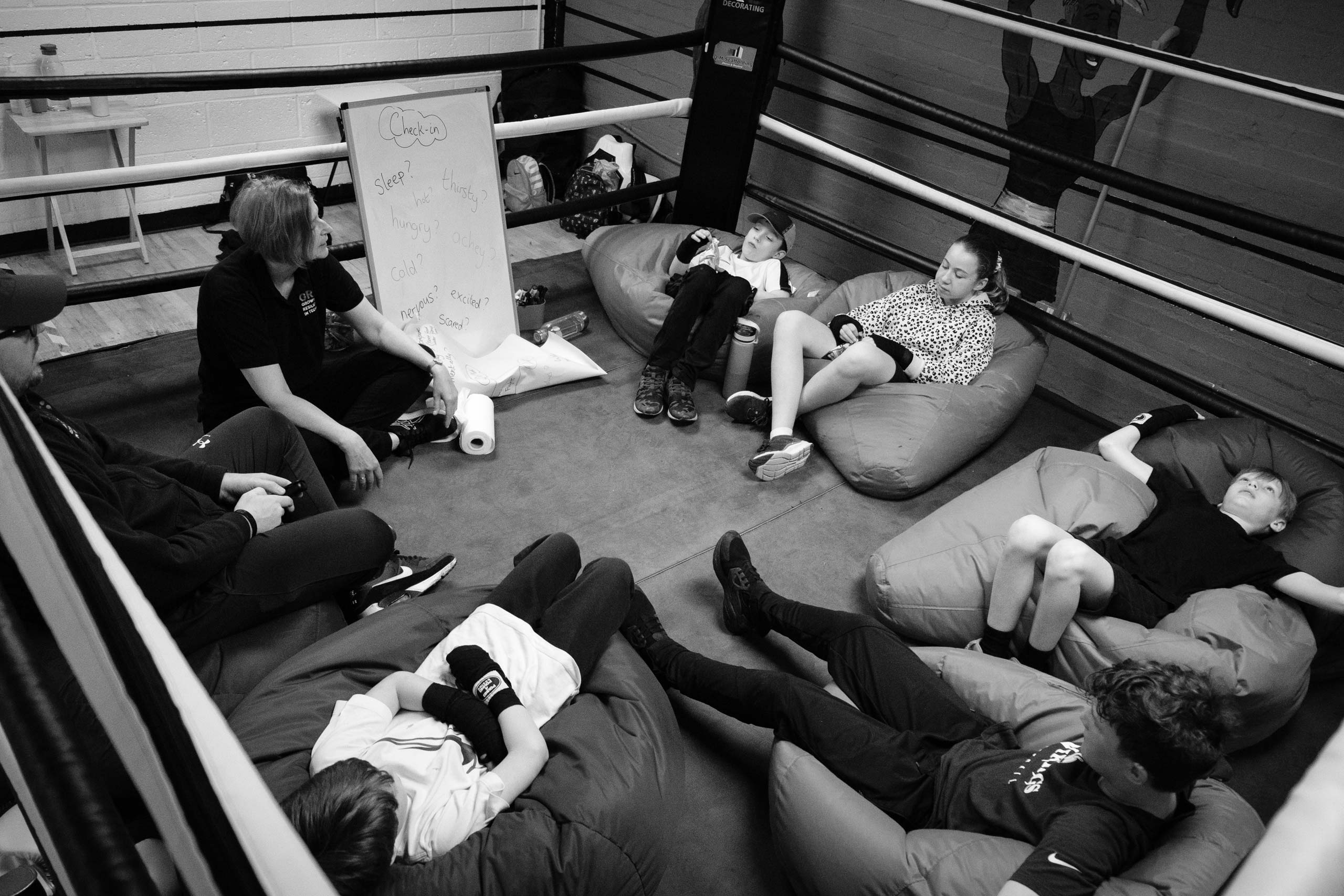GRIT support in Schools
GRIT’s Peer Mentoring Programme is currently making a meaningful impact in Letchworth, thanks to generous funding from the Letchworth Heritage Foundation and collaboration with local schools.
But this could be in your community too.
Whether you’re a funder seeking a proven, school-based intervention or a school looking to empower your students through peer support, our mentoring model is ready to grow.
To find out more please email us here.
The training from GRIT has been invaluable and has made the mentorship programme in our school different to those we have tried before in the past. The Four Corners approach has been embedded into our school culture rather than being a service that is provided one minute, and gone the next.
A Teacher from The Highfield School, Letchworth
Peer Mentoring in Your School Setting
GRIT’s peer mentoring programme is more than just a support intervention, it is a strategic investment in the long-term emotional wellbeing, personal development, and educational engagement of young people, helping them build the resilience and skills needed to thrive both in and beyond the classroom.
Not every young person feels ready to speak to a counsellor or start therapy. Sometimes that can feel like too big a step. Peer mentoring, alongside GRIT’s coaching service, offers a gentler first step. It gives young people space to reflect, feel heard, and build trust. From there, they’re more likely to take the next step and talk more openly about how they feel. This layered approach helps ensure no one falls through the gaps.
An Assistant Head, Fearnhill School
Each year a cohort of student mentors undergo a structured training programme to become a mentor using our Four Corners Method.
Mentors are equipped with the tools to support peers facing social and emotional difficulties, including friendships, exam stress and confidence. They learn active listening skills, boundary-setting, problem-solving, and the power of empathy, transforming them into approachable, trusted role models within the school.
To embed this work meaningfully, we also offer training to staff members, ensuring the whole-school team understands and reinforces the language, values, and mentoring approaches of GRIT. This in turn strengthens the support network for young people as well as establishing a shared understanding around mental health and emotional wellbeing across the school.
Mentoring becomes a two-way journey: mentees receive relatable, ongoing support, and mentors experience personal growth, develop leadership skills, and discover their own potential. Over time, this ripple effect creates a self-sustaining culture of peer-led wellbeing, where every young person knows who’s in their corner.
Please note: To ensure long-term impact, we also provide support and advice to your school or college on how to set up and manage a mentoring hub once the mentors and staff are trained.
However, it is the responsibility of the school to designate a dedicated person(s) to manage the hub going forward.
It is important to mention that mentors are not be taught how to box, nor will they be using boxing as part of their mentor sessions. Boxing is used only as metaphor for the purposes of the Four Corners Method.
Programme Structure
Duration
Runs throughout the academic year
Sessions
- Interactive student workshops led by GRIT coaches training young people as mentors using our Four Corners Method.
- Teacher training days introduce staff members to the Four Corners Method and how to support the peer mentoring programme in their school.
- Group supervision sessions are held regularly with a GRIT coach to support mentors once they are trained.
Capacity
Up to 10 students per year (if more students are required to be mentors – we can run a second set of workshops, this would come at an additional cost).
Delivery Model
On-site at your school or organisation. We would require a room to deliver the training. Once the mentors are trained, the use of a room would be required for the mentoring hub ongoing.

Student Workshops
- Introduce the 3 C’s: connection, contracting and community.
- What is mentoring and how can the Four Corners Method support the mentors to support other young people.
- Introduction of the Doctor Corner and how this corner helps mentors understand that emotions are not just mental but also physical, experienced in the body. This allows mentors to better support mentees in identifying and expressing their emotions, especially in moments of stress or anxiety, creating a safe space for emotional expression.
- Knowledge about the development of the adolescent brain, particularly the amygdala (emotional) and the frontal lobe (rational thinking), allows mentors to be more patient and understanding when mentees struggle with decision-making or emotional responses. It also helps mentors to explain why certain emotional reactions might be more intense during this developmental stage, which can increase the mentee’s self-compassion.
- Introduce the Referee Corner; how a young person’s values and beliefs can impact the way they view the world and how a mentor can support them to understand what they value the most.
- Understand how values help create healthy boundaries and the actions that can be taken to change adverse or unhealthy situations, and how to support mentees to understand what they value and what is important to them.
- Understand the purpose of making a mentoring agreement with any young person they mentor to support a healthy mentor / mentee relationship, and how to put this agreement in place.
- Mentors will be introduced to the Opposition Corner and how it will support them to explore the different ways people respond to stress or conflict and how these reactions can impact relationships.
- They will learn about the Drama and Empowerment Triangles, understanding how conflicts often follow certain patterns, and how they can use these models to support their mentees to make conscious, positive choices to handle conflicts in healthier, more constructive ways.
- Mentors will be trained to help mentees develop practical strategies for resolving conflicts, reducing stress, and promoting healthier interactions with peers.
- Mentors will be trained to help mentees identify who supports them and where they feel safe, guiding them in understanding the importance of having a reliable support network.
- Mentors will learn to use the Support Stool as a tool to help mentees visualise and assess the different types of support available to them in their life, encouraging mentees to build and strengthen these connections.
- Mentors will teach mentees how to use the Stress Bucket model, empowering them to identify and manage their stress, and find effective coping strategies to navigate challenges.
- Mentors will be trained in checking in with mentees, using active listening, asking thoughtful questions, and providing constructive feedback to ensure open and supportive dialogue.
- Mentors will learn how to support mentees in reframing negative thoughts and offer guidance both in one-on-one sessions and small group settings, ensuring tailored support for individual needs.
- Mentors will be equipped with strategies for troubleshooting challenges, understanding safeguarding protocols, and utilizing available resources to provide the best support to mentees.
- Mentors and teachers will engage in discussions to co-create the structure of the Mental Health Wellbeing Hub, ensuring alignment on goals and approaches for supporting students’ mental health and wellbeing.
- Together, mentors and teachers will identify the necessary resources, including materials, spaces, and tools, to establish a supportive and effective mentoring hub for students. Also how to refer students to be mentored.
- Mentors and teachers will collaborate on strategies to raise awareness of the mentoring hub, ensuring that students and staff know about the support available and encouraging engagement with the hub’s services.
Teacher Training
Teachers will receive a focused training day introducing GRIT’s Four Corners Method.
This overview will give staff the tools to understand the Four Corners Method and how it supports the mentoring journey. They will also understand how to support student mentors effectively and help embed the language and principles of the programme within the school culture.
Training will include:
- An introduction to the Four Corners Method including, Doctor’s Corner (values and boundaries), Opposition Corner (managing conflict), Home Corner (sources of support), and Referee Corner (values and boundaries), and how these can be used to support young people through challenge and change.
- Staff will learn how to encourage and guide student mentors, recognising their growth and helping them navigate common mentoring challenges such as setting boundaries, signposting concerns, and maintaining confidentiality and trust.
- Teachers will be invited to take an active role in shaping and sustaining the wellbeing hub by joining planning discussions, providing input on logistics and resourcing, and helping raise awareness of the hub across the school community.
This training not only strengthens the whole-school approach to student wellbeing but also provides staff with tools they can apply in everyday classroom interactions and pastoral care.
The training students and staff have undergone through the GRIT Mentoring Programme has been invaluable. Having GRIT as an established coaching service alongside the peer mentoring programme has made a huge difference. Research shows that when young people talk to their peers about their wellbeing, it often has a greater impact than when they talk to adults. One of the real strengths of this programme is that it’s owned by the students themselves, and that adds so much value.
A Teacher, Fearnhill School
Impact
- Mentors will develop essential leadership and emotional intelligence skills, which in turn helps them grow in confidence, empathy, and resilience while supporting their peers through challenges.
- The programme creates a sustainable peer support network, where students have relatable, ongoing support from their peers, creating a culture of understanding and shared responsibility.
- Through the mentoring framework, students learn how to manage stress, set healthy boundaries, and reframe negative thoughts, contributing to better mental health and emotional resilience across the school.
- By integrating mentoring into the school environment, the programme will support a collaborative approach where both students and staff are actively involved in mental and emotional wellbeing, reinforcing a sense of unity and care within the school culture.
- Teachers are trained alongside mentors, ensuring they understand the mentoring process, providing consistent support, and integrating the values of the programme into their daily interactions with students.
- With ongoing efforts to market and raise awareness of the mentoring hub, students and staff become more engaged, ensuring the programme remains a visible and accessible resource for mental health support within the school.
